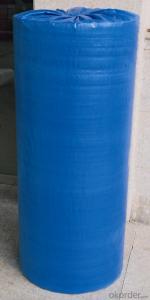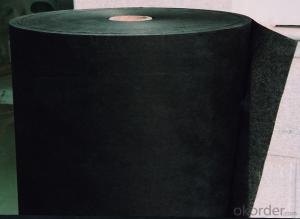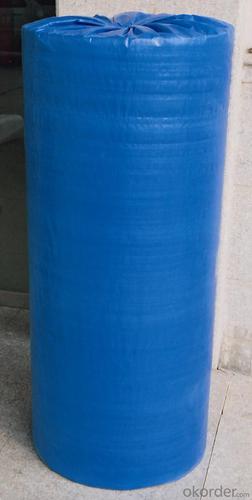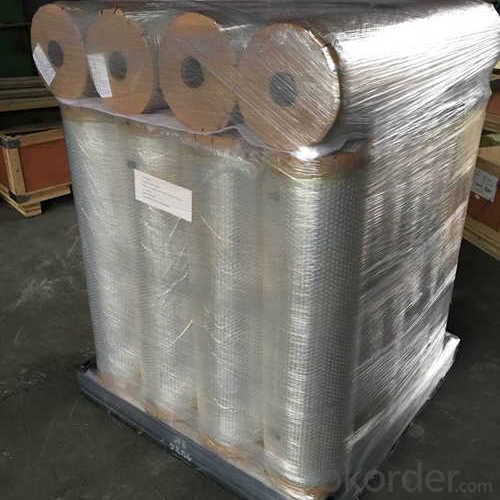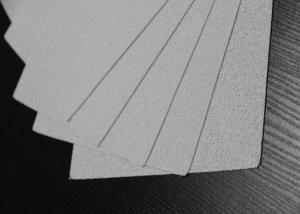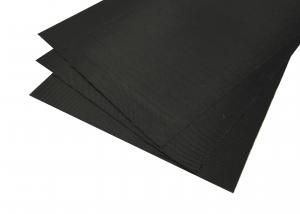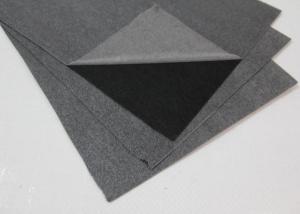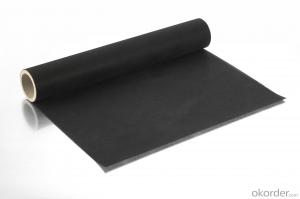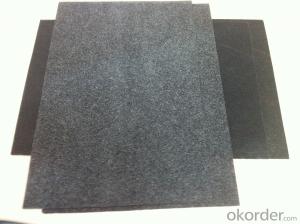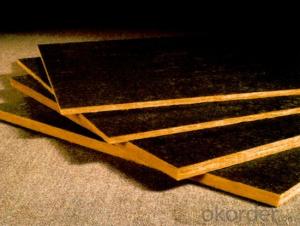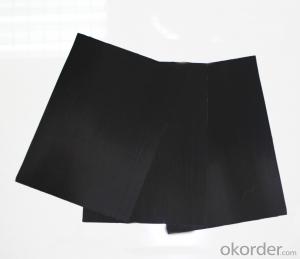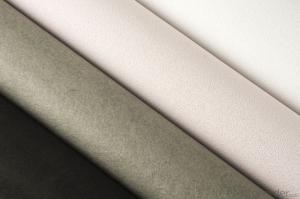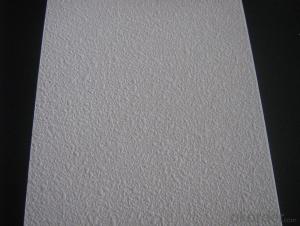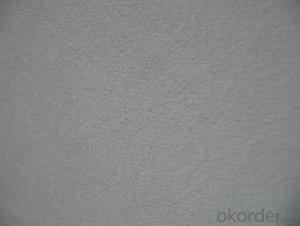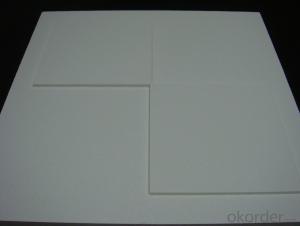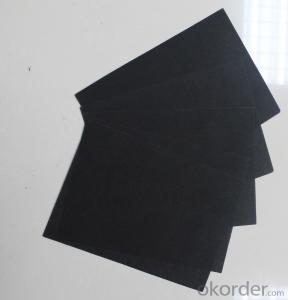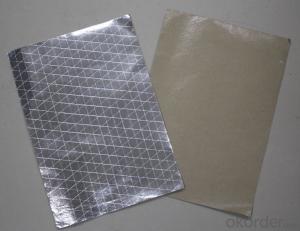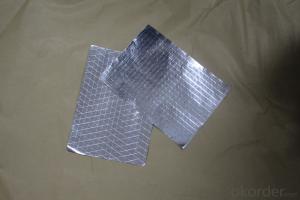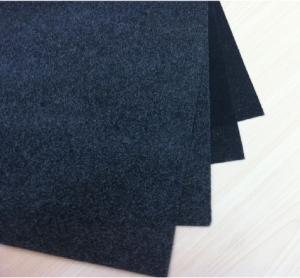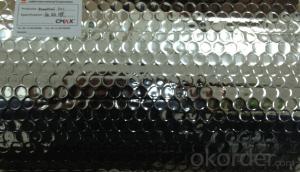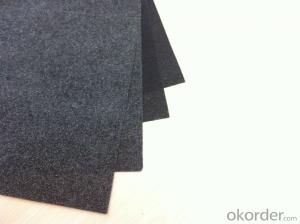Fiberglass Facing White Spray Coating Ceiling Decoration Tissue-700
- Loading Port:
- Shanghai
- Payment Terms:
- TT OR LC
- Min Order Qty:
- 500 m²
- Supply Capability:
- 100000 m²/month
OKorder Service Pledge
OKorder Financial Service
You Might Also Like
Introduction of Fiberglass Tissue
Fiberglass Tissue is a kind of facing, which is made of by the white fiberglass tissue, and special production process.
Application of Fiberglass Tissue
Our black tissue are mainly used as facing for glass wool insulation, rockwool, mineral wool etc. Also fiberglass tissue facing is used under roof decking, under attic rafters, over existing attic thermal insulation, in floors, walls and crawl spaces, and in industrial and commercial buildings to block radiant heat coming into house through the roof during the summer and retain indoor heat generated during in winter
Advantage of Fiberglass Tissue
Light weight
• High manufacturing accuracy
• High strength
• Small inertia resistance
• Strong heat dissipation ability
• Good visual effect
• High reflective insulation
• Heat resistant, water proof, stable at high temperature;
• Environmentally friendly, no smell and not-toxic;
• Smooth and clear surface;
Packing of Fiberglass Tissue
1. Waterproof paper then PVC shrinking Film
2. Water-Proof film only
3. Woven cloth
4. Kraft paper or Water Proof Film then Metal/wooden pallet
5. (Also as your request. )
Specification of Fiberglass Tissue
Specification | ||
ITEM | UNIT | VALUE |
Weight | g/m2 | 380 |
Thickness | mm | 0.55 |
Property of Fire Retardant | Non-ignitability A level | |
Tensile Strength MD | n/125px | 150 |
Tensile Strength CMD | n/125px | 110 |
Pictures of Fiberglass Tissue
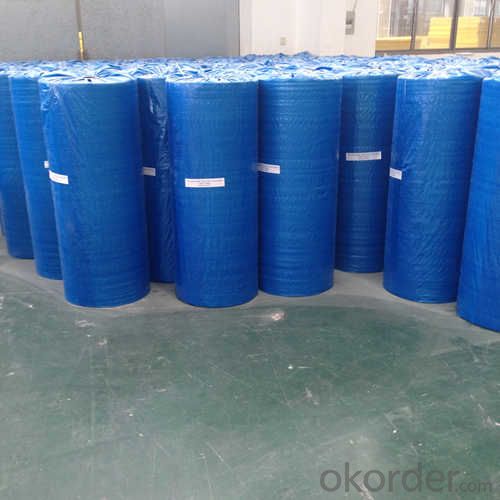
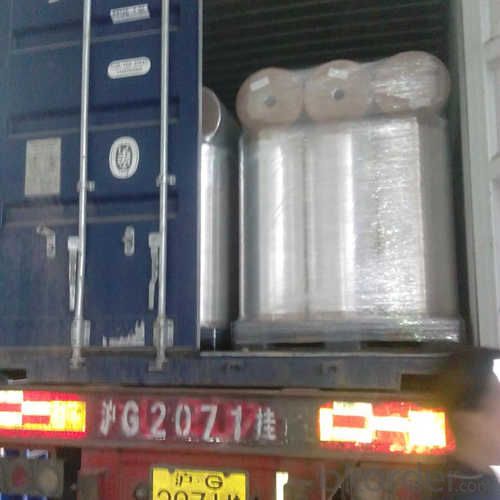
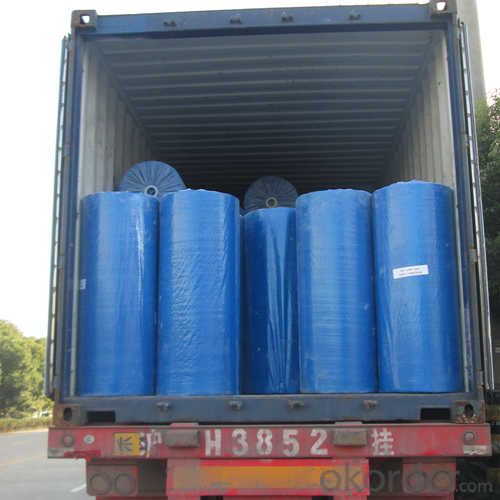
FAQ
We have organized several common questions for our clients,may help you sincerely:
1. What is the storage condition?
The Aluminum Foil Facing should be stored at room temperature and kept from wet and heat source.
2. How to guarantee the quality of the products?
We have established the international advanced quality management system,every link from raw material to final product we have strict quality test;We resolutely put an end to unqualified products flowing into the market. At the same time, we will provide necessary follow-up service assurance.
3. How long can we receive the product after purchase?
In the purchase of product within four working days, we will arrange the factory delivery as soon as possible. The specific time of receiving is related to the state and position of customers. Commonly 7 to 10 working days can be served.
- Q: Is fiberglass facing resistant to moisture or water damage?
- Yes, fiberglass facing is resistant to moisture and water damage.
- Q: What are the distinguishing features of black fiberglass tissue when compared to other non-woven materials, and how do these characteristics make it unique?
- <p>Black fiberglass tissue is distinguished from other non-woven materials by its unique properties. It is known for its high tensile strength, resistance to heat and chemicals, and excellent insulation capabilities. Unlike materials like polyester or polypropylene, black fiberglass tissue is non-flammable and does not support combustion, making it ideal for applications requiring fire resistance. Additionally, it is lightweight, flexible, and can be used in a variety of industries such as construction, automotive, and aerospace. Its black color also provides a distinct aesthetic that is not commonly found in other non-woven materials, which can be advantageous in certain applications.</p>
- Q: This question asks for a comparison between two types of insulation materials: glass fiber and ceramic fiber, highlighting their distinct characteristics and differences.
- <p>Glass fiber and ceramic fiber insulation materials differ in composition, properties, and applications. Glass fiber is made from glass and is known for its high tensile strength, flexibility, and resistance to moisture. It's commonly used in construction and automotive industries. Ceramic fiber, on the other hand, is made from ceramic materials and is characterized by high-temperature resistance, low thermal conductivity, and excellent chemical stability. It's often used in high-temperature industrial applications and aerospace. Additionally, ceramic fiber is generally more expensive than glass fiber due to its superior heat resistance and durability.</p>
- Q: Is it possible to substitute black fiberglass tissues for regular tissues in a household setting?
- <p>Using black fiberglass tissues as a replacement for regular tissues in your home is not recommended. Fiberglass tissues are typically used for insulation or reinforcement in construction and are not designed for personal use. They can be irritating to the skin and respiratory system, and prolonged exposure may lead to health issues. Regular tissues are specifically designed for personal use, providing comfort and safety. Always use products as intended for their intended purpose to ensure safety and effectiveness.</p>
- Q: Is it possible to substitute traditional wooden flooring with black fiberglass tissue in a residential setting?
- <p>While black fiberglass tissue has properties that make it suitable for certain applications, it is not typically used as a direct replacement for traditional wooden flooring in homes. Fiberglass is more commonly found in industrial or marine settings due to its strength and resistance to moisture and corrosion. Traditional wooden flooring offers a warmth and aesthetic that fiberglass cannot replicate. However, for specific uses where durability and resistance to water are needed, fiberglass could be considered, but it would require professional consultation to ensure it meets safety and structural requirements.</p>
- Q: What are the chemical characteristics of black fiberglass tissue?
- <p>Black fiberglass tissue, often referred to as black glass fiber cloth, is known for its high-temperature resistance, corrosion resistance, and electrical insulation properties. It is primarily composed of glass fibers that have been treated with a black resin to give it color and additional properties. The chemical properties include resistance to alkalis, acids, and many organic solvents. It does not conduct electricity and has low thermal conductivity, making it suitable for thermal insulation. The black fiberglass tissue is also non-flammable and has good mechanical strength, which makes it useful in various industrial applications where these properties are beneficial.</p>
- Q: Is it appropriate to use black fiberglass tissue for cleaning car windows?
- <p>Black fiberglass tissue is not recommended for wiping car windows due to its abrasive nature. It can scratch the glass and leave streaks, reducing visibility. Instead, use microfiber cloths or specialized window cleaning products designed for automotive glass to ensure a streak-free and scratch-free finish.</p>
- Q: This question asks to compare the benefits and drawbacks of utilizing black fiberglass tissue as a flooring material, considering its specific properties and potential impacts on usage and maintenance.
- <p>The advantages of using black fiberglass tissue for flooring include its high durability, resistance to corrosion, and strength, which makes it suitable for heavy-duty applications. It's also resistant to chemicals and moisture, reducing the risk of damage from spills or humid environments. However, the disadvantages include its potential to be slippery when wet, which can pose a safety hazard. Additionally, it may not be as aesthetically pleasing as other flooring options and can be more difficult to cut and install, requiring specialized tools and expertise.</p>
- Q: This question asks for the distinctions between black and white fiberglass, likely in terms of their properties or applications.
- <p>Black fiberglass and white fiberglass primarily differ in their color, which is due to the pigments added during the manufacturing process. Black fiberglass often contains carbon black, which can provide better UV resistance and may be more resistant to yellowing over time. White fiberglass, on the other hand, is typically used for applications where visibility or aesthetics are important, such as in boat hulls or certain types of insulation. Functionally, both types have similar strength and durability, but the choice between black and white often comes down to specific application needs or personal preference.</p>
- Q: This question asks if there are any differences between various brands of black fiberglass tissue.
- <p>Yes, there can be differences between different brands of black fiberglass tissue. These differences may include the quality of the fibers, the thickness and uniformity of the tissue, the level of impurities, and the overall durability. Some brands may use higher quality raw materials or have more stringent manufacturing processes, resulting in a superior product. Additionally, the performance of the black fiberglass tissue can vary based on the specific application, such as in insulation, reinforcement, or acoustical purposes. It's important to consider the specific requirements of your project and choose a brand that meets those needs.</p>
Send your message to us
Fiberglass Facing White Spray Coating Ceiling Decoration Tissue-700
- Loading Port:
- Shanghai
- Payment Terms:
- TT OR LC
- Min Order Qty:
- 500 m²
- Supply Capability:
- 100000 m²/month
OKorder Service Pledge
OKorder Financial Service
Similar products
Hot products
Hot Searches
Related keywords
